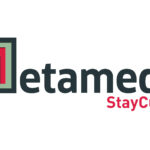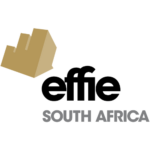

By Johanna McDowell Partner at Scopen Africa and CEO of the Independent Agency Search & Selection Company (Pty) Ltd
Digital is at the forefront of all businesses worldwide, but the methodologies and platforms change so frequently that it’s difficult to master. Agencies in particular find it a struggle to keep figuring out what marketers need as both the environment and the need evolve rapidly.
With both agencies and marketers alike at sea on how to measure digital ROI (return on investment), the question about whether social media popularity leads to sales or even brand share increase remains largely unanswered. Marketers hesitate to invest in digital due to a lack of budget and, added to that, a lack of knowledge about changing systems and processes making it hard to allocate a digital budget.
Over the past 15 years, websites and other web development work have cost marketers hundreds of thousands of rands in development, often due to the challenges inherent in programming. Global trends suggest that digital spend will continue to increase in 2019 to around 40%, and it would be surprising if spend in South Africa is any lower, as companies with a good digital strategy and strong digital footprint are those excelling when it comes to business transformation.
The SCOPEN agencyScope 2017/18 found that digital marketing budget allocations grew from 18% in 2016 to 24.3% in 2017. South Africa has the second smallest budget allocation among the eight markets that SCOPEN covers around the world. We speculate this may be partially due to our current economic climate.
In many cases, though, not enough data is being considered in the consumer journey and we lag behind much of the world in digitisation. Our marketing departments are still behind when compared to the global standard currently, where an average of 4.3 people within those department are devoted to working on digital while in South Africa this average sits at 3.5 people.
Digital transformation and data analytics in both marketing and advertising is seeing more marketers opting to work with integrated agencies, as they believe this creates more income streams and that fully integrated solutions save both time and money. It is easier and probably more cost effective to get one integrated agency to create communication, advertising and marketing solutions that focus on one key message as opposed to finding three different specialised agencies.
Agencies that think “digital first” are likely to see better success, as marketers now seek brilliant, tailor-made messaging that can be used across all major media platforms.
It’s all about grabbing audience attention in the first three seconds – and then keeping them interested before they click the “skip” button. The challenge is that the percentage of media spend used for digital is still relatively small, meaning agencies must come up with cost-effective ways of impressing marketers while delivering a strong concept that captures the customer.
- Automation and AI: Super-Tools to level up your business - 24th July 2024
- Salesforce Launches First Autonomous AI Agent - 19th July 2024
- WPP champions inclusive creativity at inaugural Unite South Africa Awards during Pride Month - 19th July 2024





